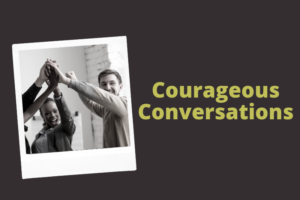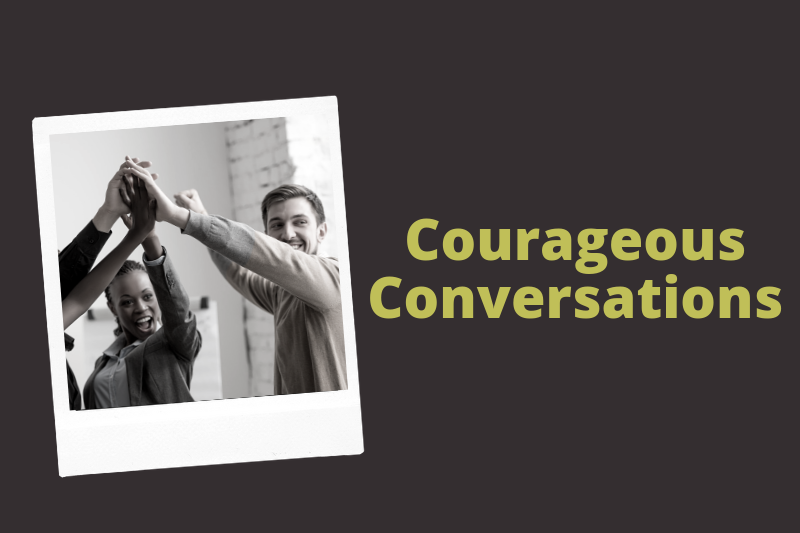Why Examine and Address Race? Race matters—in society and in our schools. It is critical for educators to address racial issues in order to uncover personal and institutional biases that prevent all students, and especially students of color, from reaching their fullest potential. https://courageousconversation.com/about/
 Every year, Pacific Educational Group (PEG) holds its Courageous Conversation™ summit to engage community leaders in conversation and discussion around racial disparities in an effort to transform beliefs and behaviors and build a more equitable society.
Every year, Pacific Educational Group (PEG) holds its Courageous Conversation™ summit to engage community leaders in conversation and discussion around racial disparities in an effort to transform beliefs and behaviors and build a more equitable society.
Eastside Pathways has had a long history working with PEG to provide professional development to its staff, partners and those engaged in working collectively to better impact kids on the Eastside.
This year the summit was held at Odle Middle School on June 27-28. Eastside Pathways board members and staff attended the summit along with partner members – Jesse Franklin and Peter Shin (Rainier Athletes), Kim Holland (Lifewire), Cara Ianni (King County Housing Authority), Lauren Belmonte and Sarah Spencer (KidsQuest Children’s Museum), Debbie Lacy (ERIC), Toni Esparz and Shelley Brittinghame (City of Bellevue), Rachel Krinsky (Lifewire), and Kristen Jones (Bellevue College).
Eastside Pathways’ Community Impact Managers Kalika Curry and Sandy Nathan share their reflections of the 2-day summit.
 Kalika Curry attended Beyond Diversity 2
Kalika Curry attended Beyond Diversity 2
What were your expectations going into the summit?
I am passionate about learning and deepening my practices. However, learning environments focused on race can be tricky for me as a mixed-race woman. Often the power dynamics in the room make it difficult to have a safe and productive learning environment. When I attended Beyond Diversity 1, I had my first safe, productive and challenging experience. This allow me to go into the space with confidence and curiosity.
What was one “aha” moment or a shift in perspective?
I spend a lot of personal and professional time unpacking and educating myself on systems, with a focus on adaptive leadership and racism. As a woman of color this can be exhaustive as there is no reprieve from it and necessary for me to facilitate change. Being in the space with folks from around country was a reminder that racism is a system that affects everyone and it will take everyone transform it.
What realization was the toughest for you to digest?
Again as a multi-cultural woman there is no escaping the impacts of racism. The sense of urgency for me is all too real. However, for folks who are closer to the “center” the trauma of racism is far more distant. It’s difficult for me to stay in the conversation, offer grace and patience. We need solutions for my children, me, and people who look like us now.
What tools or practices will you bring back into your work? How will you make this an intentional action in your daily job/work?
The Compass, Conditions and Agreements are so helpful. There were life changing for me in BD1. Eastside Pathways (Backbone) uses these practices in our daily practices and we often use them to facilitate groups who are putting results for youth of color at the center of their work.
Who would you recommend attending Courageous Conversations?
Gosh, anyone willing to lean into it! The more you can be honest with yourself, do the work, and practice the richer the learning. I have a lot of gratitude for anyone who attends; it creates shared language and purpose.
 Sandy Nathan attended Beyond Diversity 101
Sandy Nathan attended Beyond Diversity 101
What were your expectations going into the summit?
It was a first for me – having conversations about race and its inequitable implications in our lives. As an empath, I have strong moral beliefs against racism and how it has oppressed people of color, but I didn’t have the tools or processes to move it to a conscious intentional actionable space. The session not only stirred me intellectually, it also moved me at multiple levels personally.
What was one “aha” moment or a shift in perspective?
It is important to meet people where they are at. Think about how you can lean in and get to a place of shared understanding in order to sustain the conversation – that is critical. Talking about race can and will cause discomfort, but to be able to stay in that space, without a closure but keeping the conversation alive and ongoing is key. Perpetuating racism doesn’t require intent or math, just being unconscious does that too. #WORD
What realization was the toughest for you to digest?
It was tough to realize how my ‘good intention’ isn’t good enough. The fact that I can disengage from racism at times is a privilege that those who are being oppressed by it on a daily basis don’t have. It is critical to realize that race is a systemic problem that each of us needs to take responsibility for those that are most affected and others that range anywhere between the farthest end to the center.
What tools or practices will you bring back into your work? How will you make this an intentional action in your daily job/work?
The Courageous Conversation Compass; The Four Agreements – it is critical to leverage these tools in our work as Facilitators and to ensure that every perspective, the one that is in the room and the one that should have been in it, is heard.
Who would you recommend attending Courageous Conversations?
Everyone!

